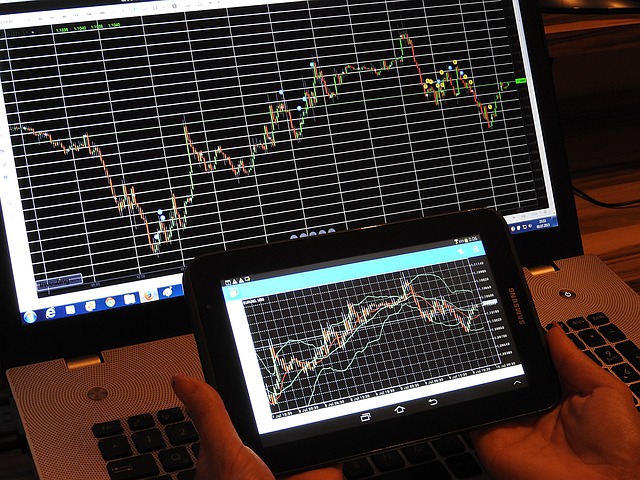Understanding Cryptocurrency Trading Platforms: A Comprehensive Guide
The rise of cryptocurrencies has changed the landscape of finance in more ways than one. With thousands of digital currencies emerging, the need for effective cryptocurrency trading platforms has become paramount for traders and investors alike. In this article, we will delve deeply into what cryptocurrency trading platforms are, how they operate, the types available, security aspects, and much more. Through this exploration, I aim to provide not only factual information but also insights based on my own opinions and observed trends in the market.

What is a Cryptocurrency Trading Platform?
A cryptocurrency trading platform is a digital marketplace that enables individuals to buy, sell, and trade various cryptocurrencies. It acts as an intermediary between buyers and sellers, providing the necessary tools and services to facilitate transactions. Some platforms cater exclusively to cryptocurrencies, while others include fiat currency trading as well.
How Do Cryptocurrency Trading Platforms Work?
The operation of a cryptocurrency trading platform can be summarized in a few steps:
-
Registration
Users must create accounts by providing their personal information, which often includes identity verification steps. This is crucial for compliance with regulations.
-
Fund Your Account
After registration, users can fund their accounts through various methods such as bank transfers, credit cards, or even other cryptocurrencies.
-
Trading
Once funded, users can start placing buy and sell orders for different cryptocurrencies. The platform matches buyers with sellers and executes the trades.
-
Withdrawal
After trading, users can withdraw their cryptocurrencies or converted fiat currency back to their bank accounts.
Types of Cryptocurrency Trading Platforms
Cryptocurrency trading platforms come in various forms, each serving specific needs and preferences of traders:
1. Centralized Exchanges (CEX)
Centralized exchanges are the most common type of trading platform. They operate through a centralized entity, managing the order book and executing trades on behalf of users. Popular examples include Binance, Coinbase, and Kraken.
Pros and Cons
- Pros: High liquidity, user-friendly interfaces, and a wide variety of cryptocurrencies are available.
- Cons: Users must trust the platform with their funds, and it can be vulnerable to hacks.
2. Decentralized Exchanges (DEX)
Decentralized exchanges are platforms that enable peer-to-peer trading without a central authority. They leverage blockchain technology to execute trades directly between users' wallets. Examples include Uniswap and SushiSwap.
Pros and Cons
- Pros: Enhanced privacy, control over funds, and reduced risk of hacking.
- Cons: Lower liquidity and often more complex user interfaces.
3. Peer-to-Peer (P2P) Platforms
P2P platforms allow users to buy and sell cryptocurrencies directly amongst themselves, often at negotiated prices. Platforms like LocalBitcoins and Paxful fall into this category.
Pros and Cons
- Pros: Often lower fees and a wider variety of payment options.
- Cons: Vulnerable to scams if users don't exercise caution.
Key Features of Cryptocurrency Trading Platforms
When evaluating a trading platform, it’s essential to consider several key features that can significantly impact your trading experience:
1. User Interface and Experience
A user-friendly interface is essential, especially for beginners who may find the complexities of cryptocurrency trading overwhelming. I believe a clean, intuitive design ultimately leads to better trading outcomes.
2. Security Measures
Given the history of hacks and scams in the cryptocurrency space, robust security features such as two-factor authentication (2FA), cold storage for funds, and a strong compliance framework are non-negotiable factors.
3. Variety of Cryptocurrencies
The extent of available cryptocurrencies is vital for diversification. A platform that offers multiple trading pairs can allow users to explore and invest in various tokens.
4. Liquidity
High liquidity ensures that trades can be executed quickly at market prices without significant price slippage. This is particularly important during volatile market conditions.
5. Customer Support
Responsive and knowledgeable customer support can greatly enhance the user experience, especially when issues arise or questions need answers. A platform that lacks support can lead to user distrust.

The Importance of Security in Cryptocurrency Trading
Security should always be one of the most critical considerations when selecting a cryptocurrency trading platform. As someone who has followed this sector for years, I’ve seen countless stories of users losing their investments due to inadequate security measures.
Common Security Features
- Two-Factor Authentication: A simple yet effective layer of protection that requires not just a password but also a second factor, such as a code sent to your phone.
- Cold Storage: This involves keeping the majority of users' funds offline to protect against hacks.
- Regular Audits: Frequent security audits can help identify and address potential vulnerabilities.
User Responsibility
While platforms can implement top-notch security protocols, users must also take responsibility for their own security. This includes using strong, unique passwords and being vigilant about phishing scams.
Conclusion: The Future of Cryptocurrency Trading Platforms
The cryptocurrency market is undoubtedly turbulent and ever-changing. However, I remain optimistic about the future growth and adoption of cryptocurrency trading platforms. As technology evolves, so too will the features and security of these platforms. In my opinion, it is crucial for traders and investors to stay informed and choose platforms that align with their trading strategies, risk tolerance, and personal preferences.
In conclusion, cryptocurrency trading platforms serve as gateways to the burgeoning world of digital assets. Whether you are a novice or a seasoned trader, understanding the intricacies of these platforms can significantly enhance your trading experience and ultimately drive success in a volatile market.